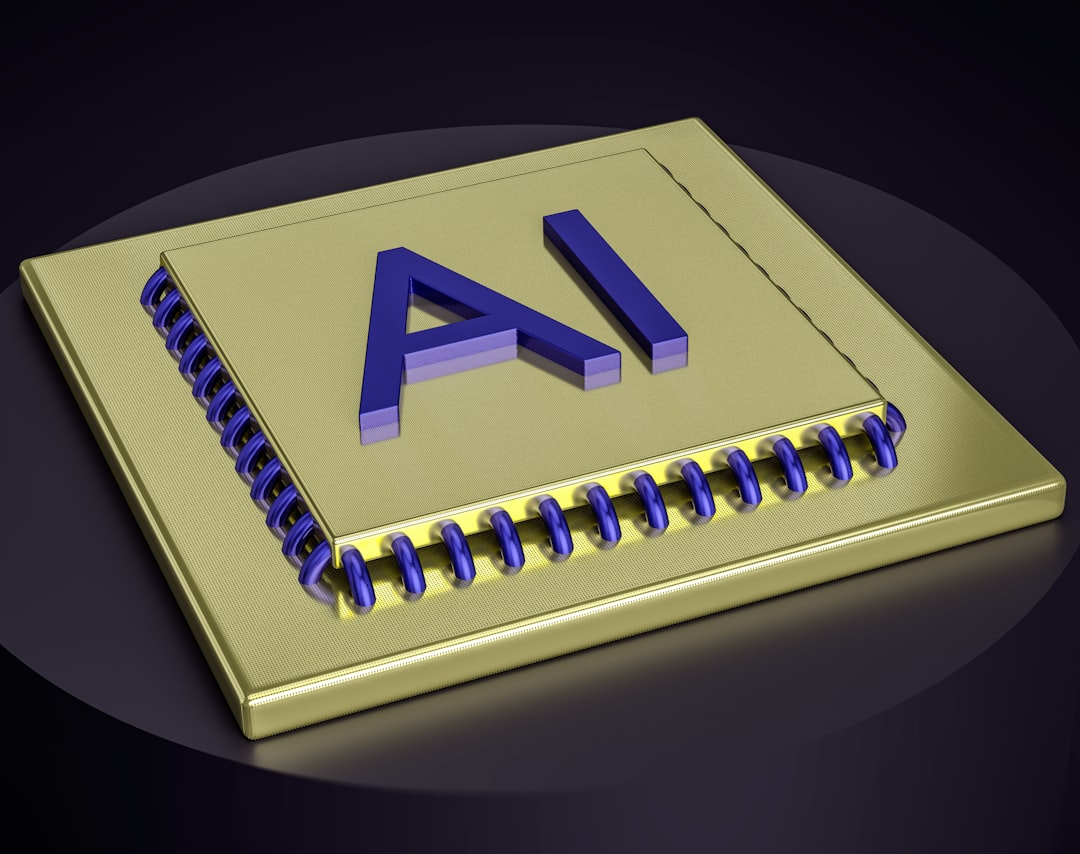The rise of Artificial Intelligence is undeniably reshaping our world, from how we work to how we live. It’s easy to feel a mix of excitement and apprehension about what the future holds for human roles. But here’s the truth: AI isn’t here to replace us entirely; it’s here to augment us. The real challenge, and opportunity, lies in understanding what humans do best and doubling down on those uniquely human capabilities. Ready to discover how to stay ahead of the curve? Let’s dive in! 😊
1. Cultivate Creativity and Critical Thinking 🤔
While AI can generate vast amounts of data and even create art or text, true innovation and original thought remain firmly in the human domain. Creativity isn’t just about artistic expression; it’s about connecting disparate ideas, envisioning new solutions, and challenging the status quo. Critical thinking allows us to evaluate information, identify biases, and make nuanced judgments that AI, for all its processing power, often struggles with. In fact, a 2023 World Economic Forum report highlighted critical thinking and creativity as two of the top skills for future jobs.
As AI takes over routine and analytical tasks, our ability to think outside the box and question assumptions becomes even more valuable. We need to be the architects of new ideas, not just the executors of existing ones. This means actively seeking diverse perspectives and engaging in activities that foster imaginative thought.
AI can be a powerful tool for brainstorming and data analysis, but it’s the human mind that provides the initial spark of genius and the final ethical filter for its outputs. Think of AI as your co-pilot, not your replacement.
2. Master Emotional Intelligence and Interpersonal Skills 📊
AI can process emotions in data, but it cannot genuinely feel or understand the complexities of human interaction. Emotional intelligence – the ability to understand and manage one’s own emotions, and to perceive and influence the emotions of others – is paramount. This includes empathy, active listening, negotiation, and building rapport. These are the cornerstones of effective leadership, teamwork, and customer relations, areas where human connection is irreplaceable. A recent survey by Deloitte found that companies prioritizing soft skills like emotional intelligence saw a significant boost in productivity and employee retention.
In an increasingly automated world, the demand for roles requiring high levels of human interaction and emotional nuance will only grow. Think about roles in healthcare, education, sales, and management – these are fields where human touch and understanding are absolutely critical.
Key Interpersonal Skills for the AI Era
| Skill | Description | AI Complement | Importance |
|---|---|---|---|
| Empathy | Understanding and sharing the feelings of another. | AI can analyze sentiment but not truly empathize. | Crucial for building trust and strong relationships. |
| Collaboration | Working effectively with others towards a common goal. | AI can facilitate collaboration but not initiate or lead it. | Essential for complex projects and diverse teams. |
| Communication | Conveying information clearly and persuasively. | AI can generate text but lacks human nuance and context. | Key for leadership, negotiation, and conflict resolution. |
| Leadership | Guiding and motivating individuals and teams. | AI can assist with decision-making but cannot inspire. | Drives innovation, culture, and strategic direction. |
Don’t mistake AI’s ability to process emotional data for genuine emotional intelligence. Relying solely on AI for interpersonal interactions can lead to a significant loss of human connection and understanding.
Key Checkpoints: Don’t Forget These! 📌
Have you been following along? It’s easy to forget things in a long article, so let’s quickly recap the most important points. Please remember these three things above all else.
-
✅
Humans excel at creativity and critical thinking.
These are irreplaceable skills for innovation and nuanced decision-making that AI cannot replicate. -
✅
Emotional intelligence is your superpower.
Building genuine connections and understanding human emotions will be increasingly vital in the workplace. -
✅
Lifelong learning is not optional, it’s essential.
The pace of technological change demands continuous upskilling and adaptability to new tools and roles.
3. Embrace Lifelong Learning and Adaptability 👩💼👨💻
The landscape of work is evolving at an unprecedented pace, largely driven by AI. What’s relevant today might be obsolete tomorrow. Therefore, the ability to continuously learn, unlearn, and relearn is no longer a luxury but a necessity. This means actively seeking out new knowledge, developing new skills, and being open to changing career paths or job functions. A 2024 LinkedIn report indicated that 75% of professionals believe continuous learning is critical for career advancement in the current climate.
Adaptability goes hand-in-hand with learning. It’s about being flexible in the face of change, resilient in the face of setbacks, and proactive in seeking new opportunities. This includes not just technical skills, but also soft skills like problem-solving, critical thinking, and communication, which are transferable across various roles and industries.
Invest in “learnability” – the desire and ability to quickly learn new skills. This meta-skill will be your most valuable asset in the AI era. Consider online courses, workshops, and even informal learning through industry blogs and communities.
4. Focus on Complex Problem Solving and Strategic Thinking 📚
AI excels at solving well-defined problems with clear parameters. However, real-world challenges are often ambiguous, multifaceted, and require a deep understanding of human context, ethics, and long-term implications. This is where human complex problem-solving and strategic thinking shine. We can identify underlying issues, connect seemingly unrelated factors, and devise innovative strategies that consider a broader range of variables than AI can currently handle. For example, while AI can optimize a supply chain, a human strategist is needed to anticipate geopolitical shifts or unforeseen market disruptions.
Strategic thinking involves foresight, planning, and the ability to make decisions under uncertainty. It requires understanding human motivations, market dynamics, and societal trends – all areas where human intuition and experience provide an edge. These skills are crucial for leadership roles and for guiding organizations through the complexities of the AI-driven future.

Case Study: AI in Healthcare Diagnostics
- **Situation:** An AI system can analyze medical images with incredible accuracy, often surpassing human radiologists in detecting subtle anomalies.
- **Challenge:** A patient presents with unusual symptoms that don’t fit standard diagnostic patterns, and the AI’s output is ambiguous or contradictory.
Human Intervention
1) **Synthesize Diverse Information:** A human doctor integrates the AI’s findings with patient history, lifestyle factors, and subjective symptom descriptions, which AI struggles to contextualize holistically.
2) **Ethical Decision-Making:** The doctor considers the patient’s values and preferences, discussing potential risks and benefits of various treatment paths, a decision-making process beyond AI’s current capabilities.
Final Outcome
– **Accurate Diagnosis:** The doctor, leveraging AI’s analytical power and their own complex reasoning, arrives at a precise diagnosis.
– **Personalized Treatment Plan:** A treatment plan is developed that is not only medically sound but also tailored to the individual patient’s needs and circumstances, ensuring human-centric care.
This example clearly illustrates that while AI provides powerful tools, human expertise in complex problem-solving and strategic decision-making remains indispensable, especially when dealing with nuanced, real-world scenarios.
5. Develop Ethical Reasoning and Human-Centric Design 📝
As AI becomes more integrated into our lives, questions of ethics, fairness, and societal impact become paramount. AI systems are built on data and algorithms, which can inadvertently perpetuate biases or lead to unintended consequences. It is up to humans to instill ethical principles into AI design, development, and deployment. This requires a strong moral compass, an understanding of diverse societal values, and the ability to anticipate the broader implications of technological advancements. Organizations are increasingly establishing AI ethics boards and hiring roles focused on responsible AI development.
Human-centric design ensures that AI tools are created to enhance human capabilities and well-being, rather than diminish them. This involves understanding user needs, ensuring transparency in AI decision-making, and prioritizing user control and privacy. Our role is to ensure that technology serves humanity, not the other way around. This is a critical responsibility that only humans can truly bear.
